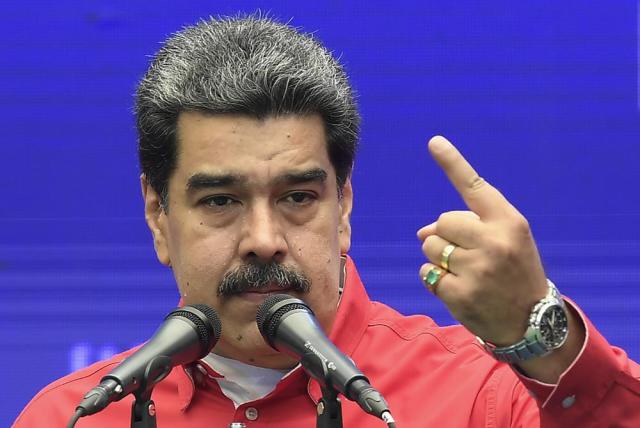
The government of Venezuela and its opposition will begin a new dialogue Friday in Mexico. It’s the third attempt in four years, and it´s surrounded by very low expectations from analysts and even apathy from citizens of the troubled South American nation.
By AP
The administration of U.S. President Joe Biden could play a fundamental role in the process because the government of Venezuela President Nicolás Maduro seeks the easing of crippling economic sanctions.
Here is a summary of why the dialogue is taking place:
WHAT IS THE VENEZUELAN GOVERNMENT LOOKING FOR?
Maduro is in a greater position of strength in the face of an opposition that has weakened and fractured since the last rounds of talks in 2017-2018 and 2019. His opponents are losing their capacity to pressure the socialist government from the streets or from the National Assembly, which is no longer led by the opposition.
Analysts suggest that Maduro’s only interest in these negotiations is to get the Biden administration to ease the sanctions that were toughened by his predecessor, Donald Trump.
“The expectation of the Maduro government to go to the table is to obtain concessions, not from the opposition but from the U.S. government,” said Mariano de Alba, senior adviser to the nongovernmental International Crisis Group.
WHAT IS THE OPPOSITION’S INTEREST?
The opposition coalition headed by Juan Guaidó has said it will seek to promote a plan for massive imports of COVID-19 vaccines and a “National Salvation Agreement” that would involve negotiations with Maduro’s government and its local allies, opposition organizations and the international community. Guaidó, whom the U.S. and other countries recognize as Venezuela’s legitimate leader, had consistently rejected any coexistence with Maduro, but he abandoned that position when he proposed the national agreement for the first time in May.
Only about 3.9% of Venezuelan’s 28.5 million residents are fully vaccinated, according to Johns Hopkins University.
The opposition also wants a schedule for transparent and democratic elections. Venezuelans are expected to elect governors and mayors in November, but opposition forces say the electoral conditions are grossly unfair and have yet to decide whether they will participate.
De Alba said the opposition “has very little bargaining power” to press Maduro on elections. He said Guaidó and his allies can only try to achieve “better conditions” going into the November vote and reach some partial agreements to try to “re-institutionalize” the country.
WHAT ROLE CAN THE U.S. PLAY?
The Biden administration has been in favor of a negotiated solution to Venezuela’s crises, but it is not yet clear to what extent it would be willing to relax economic sanctions. Last month, it agreed to lift a sanction and allow non-U.S. companies to export liquefied petroleum gas to Venezuela, a humanitarian move that will allow people to eventually regain access to propane rather than cooking on coal or wood stoves.
David Smilde, senior adviser to the independent Washington Office for Latin American Affairs, said the U.S. government, along with the European Union and Canada, “are willing to negotiate sanctions even if Maduro is in power.” But given the U.S. midterm elections scheduled for next year, some analysts believe it is possible that Biden would avoid decisions in favor of the Venezuelan government that could complicate the Democratic Party’s options, especially in the state of Florida, where a large Cuban and Venezuelan community opposes Maduro.
WHAT ABOUT THE REST OF THE INTERNATIONAL COMMUNITY?
The complex dynamics created worldwide by the coronavirus pandemic, the length of the Venezuelan crises and the failure of previous dialogues have weakened the international community’s interest in the South American country, which suggests that the results of this latest discussions will depend largely on Venezuelan actors.
Norway is supporting the dialogue in Mexico. Representatives from Russia, Argentina, the Netherlands and France could accompany the government and opposition delegates, but it is unclear what their role would be.